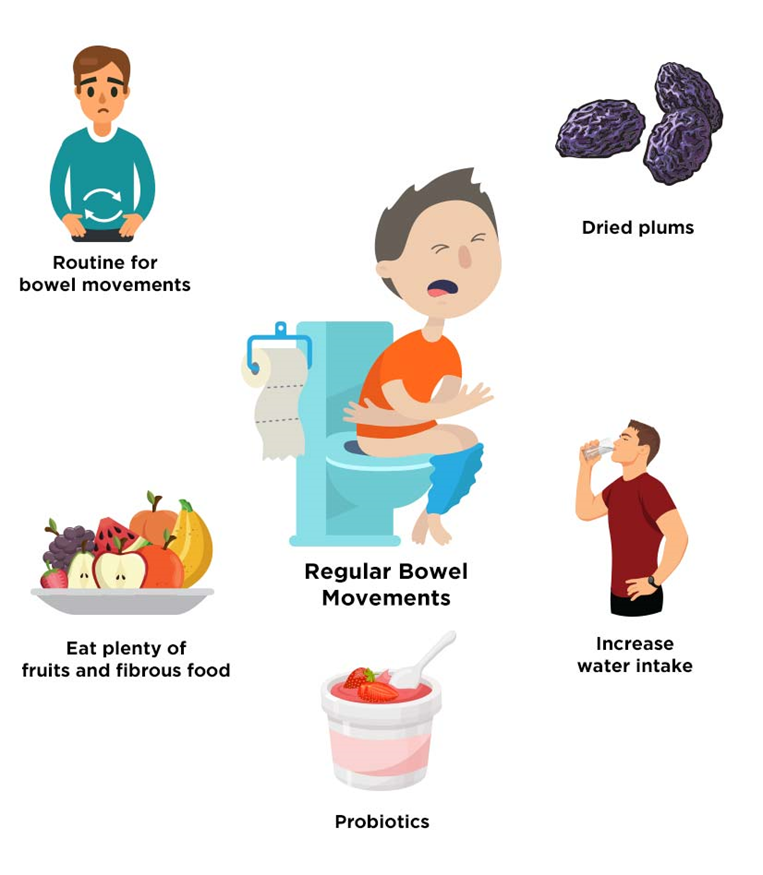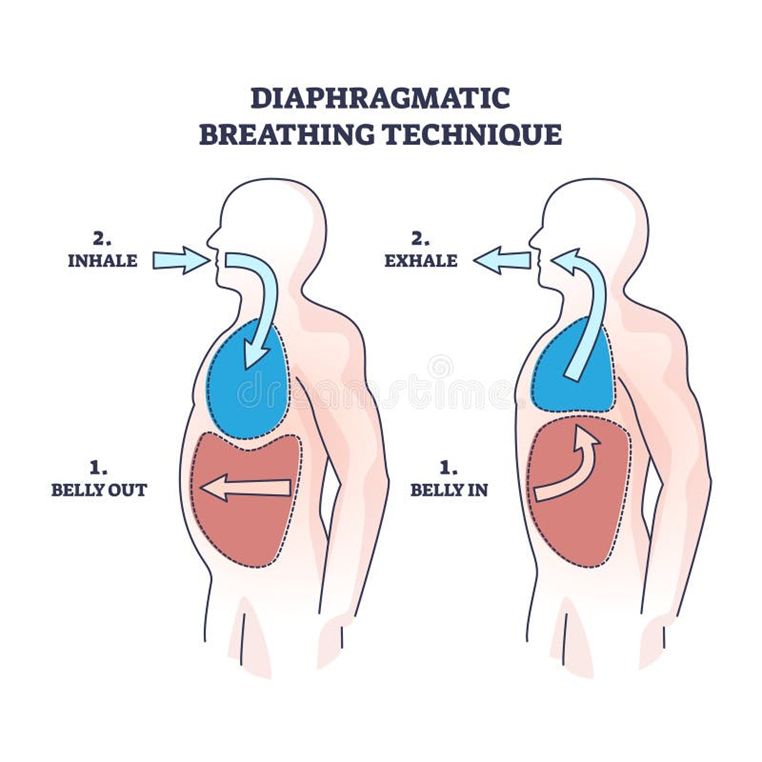A nurse is providing teaching to a postoperative client regarding diet. Which nutrient is responsible for maintaining healthy bowel elimination?
Fiber
Fat
Protein
Minerals
The Correct Answer is A
Choice A Reason:
Fiber is correct. Fiber is essential for maintaining healthy bowel elimination. It helps to add bulk to the stool and promotes regular bowel movements. There are two types of fiber: soluble and insoluble. Soluble fiber absorbs water and forms a gel-like substance, which helps soften the stool and make it easier to pass. Insoluble fiber adds bulk to the stool and helps it move through the digestive tract more quickly.

Choice B Reason:
Fat is incorrect. While fats are an important part of a balanced diet, they do not play a primary role in maintaining healthy bowel elimination. Fats are essential for energy and the absorption of fat-soluble vitamins, but they do not have the same effect on bowel movements as fiber.
Choice C Reason:
Protein is incorrect. Protein is crucial for building and repairing tissues, but it does not directly influence bowel elimination. A diet high in protein without adequate fiber can sometimes lead to constipation.
Choice D Reason:
Minerals are incorrect. Minerals are vital for various bodily functions, including bone health, fluid balance, and muscle function. However, they do not directly impact bowel elimination in the same way that fiber does.
Nursing Test Bank
Naxlex Comprehensive Predictor Exams
Related Questions
Correct Answer is A
Explanation
Choice A Reason:
Repeating auscultation after asking the client to take a deep breath and cough is the first intervention the nurse should take. This action helps to clear any secretions or mucus that might be causing the crackles. If the crackles persist after the client coughs, it indicates that the sounds are likely due to fluid in the lungs, which requires further assessment and intervention. This step ensures that the nurse accurately identifies the cause of the crackles before proceeding with other interventions.
Choice B Reason:
Instructing the client to limit fluid intake to less than 2,000 mL/day might be appropriate in cases of fluid overload or heart failure, but it is not the first intervention. The nurse needs to confirm the cause of the crackles before making any recommendations about fluid intake. Limiting fluid intake without proper assessment could lead to dehydration and other complications.
Choice C Reason:
Placing the client on bed rest in semi-Fowler’s position can help improve lung expansion and oxygenation by reducing pressure on the diaphragm. However, this is not the first intervention. The nurse should first determine if the crackles are due to secretions that can be cleared by coughing. Semi-Fowler’s position is beneficial for patients with respiratory distress, but it does not address the immediate need to reassess lung sounds.
Choice D Reason:
Preparing to administer antibiotics is not the first intervention. Antibiotics are used to treat infections, and the nurse needs to confirm whether the crackles are due to an infection or another cause before administering medication. Immediate administration of antibiotics without proper assessment could lead to inappropriate treatment and antibiotic resistance.
Correct Answer is D
Explanation
The correct answer is d) Tighten the abdominal muscles while exhaling.
Choice A Reason:
“Raise both shoulders while breathing deeply” is incorrect. Diaphragmatic breathing focuses on using the diaphragm rather than the shoulders. Raising the shoulders can lead to shallow chest breathing, which is less effective for oxygen exchange.
Choice B Reason:
“Inhale through the mouth” is incorrect. For diaphragmatic breathing, it is recommended to inhale through the nose. This helps filter, warm, and humidify the air before it reaches the lungs.
Choice C Reason:
“Exhale through the nose” is incorrect. While exhaling through the nose is beneficial in some breathing exercises, diaphragmatic breathing typically involves exhaling through pursed lips. This technique helps slow down the exhalation and keeps the airways open longer.
Choice D Reason:
“Tighten the abdominal muscles while exhaling” is correct. Tightening the abdominal muscles helps push the diaphragm up, forcing air out of the lungs more efficiently. This action is a key component of effective diaphragmatic breathing.

Whether you are a student looking to ace your exams or a practicing nurse seeking to enhance your expertise , our nursing education contents will empower you with the confidence and competence to make a difference in the lives of patients and become a respected leader in the healthcare field.
Visit Naxlex, invest in your future and unlock endless possibilities with our unparalleled nursing education contents today
Report Wrong Answer on the Current Question
Do you disagree with the answer? If yes, what is your expected answer? Explain.
Kindly be descriptive with the issue you are facing.
